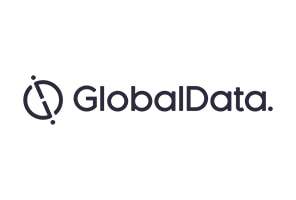Monday, 11 September was a big day for head and neck cancers (H&N) at the 2017 European Society of Medical Oncology (ESMO) conference in Madrid, Spain. Multiple data readouts were presented for immune checkpoint inhibitors in H&N squamous cell carcinoma (HNSCC).
Updated Phase III data from the Checkmate 141 and Keynote-040 trials of Bristol Myers Squibb’s (BMS) Opdivo (nivolumab) and Merck’s Keytruda (pembrolizumab), respectively, were presented in the same session. Both drugs are programmed cell death 1 (PD-1) inhibitors that were approved for HNSCC that progressed on or after platinum-based chemotherapy.
The US Food and Drug Administration (FDA) fast-tracked approval for Keytruda came in August 2016, while Opdivo was given full approval three months later. Stakes are high for the Keynote-040 trial, given that Keytruda’s fast-tracked approval was conditional, requiring confirmation of clinical benefit in follow-up trials.
The Phase III Checkmate 141 trial recruited 361 patients with recurrent or metastatic HNSCC (R/M HNSCC) of the oral cavity, pharynx, or larynx. Patients in this study had progressed in six months or less on platinum-based chemotherapy, and there was no limit to the prior lines of therapy.
Patients were randomised 2:1 on Opdivo or investigator’s choice standard of care (SOC) such as methotrexate, docetaxel, or cetixumab. Data from this trial was originally published in the New England Journal of Medicine, showing that Opdivo met the primary endpoint of overall survival (OS) with a median value of 7.5 months, compared with 5.1 in the SOC group. The 12 month OS was 36.0% for Opdivo, compared with 16.6% for patients administered SOC only.
Data presented at the ESMO 2017 conference were part of the trial extension, which saw a subset of patients in the Opdivo arm qualified for treatment with the drug beyond tumour progression. Results showed tumour reduction of 24% and a median OS of 12.7 months.

US Tariffs are shifting - will you react or anticipate?
Don’t let policy changes catch you off guard. Stay proactive with real-time data and expert analysis.
By GlobalDataIn a late-breaking abstract for an analogous study conducted by Merck, Keynote-040, Keytruda was investigated in 495 patients with R/M HNSCC of the oral cavity, oropharynx, hypopharynx, or larynx who had progressed on platinum-based chemotherapy. The primary endpoint was OS in the intent to treat (ITT) population, with several secondary endpoints, including an analysis of sub-populations split by programmed cell death ligand – 1 (PD-L1) expression, the ligand recognised by PD-1 therapies.
In this trial, the median OS was 8.4 months for Keytruda, compared with 7.1 months for SOC. Although this result was statistically significant (p=0.02), it did not meet the predetermined efficacy boundary (HR, 0.82 [95% CI, 0.67-1.01]; p = 0.03 [one-sided]), and was considered a negative result.
Although the result is a disappointment, especially in light of the positive trial result from Opdivo’s Checkmate 141 trial, the sentiments by the study presenter and invited discussant, Drs. Ezra Cohen and Sandrine Faivre, were cautiously positive, citing that there was an observable effect in the drug trial. In addition, the subgroup analysis showed a clear benefit for Keytruda in the PD-L1 high patient group (TPS ≥ 50%).
It is not yet clear why the Keytruda study was considered a negative result, while results in the Opdivo study were positive. It seems unlikely that the difference is due to variations in efficacy of the two agents, given their similar clinical responses in various tumour types. Differences between the clinical trial design and patient populations studied were suggested to account for such variation.
In an overlay of the survival curves for both drugs, there is a clear difference in the SOC group between the trials. The 12-month OS for the SOC group was 16.6% for the Checkmate 041 trial (compared with 36.0% for Opdivo) and 27.2% for Keynote-140 (compared with 37.3% for Keytruda). Given this, it appears that there was a higher bar set for the Keytruda trial.
To explain the differences between the SOC group in the two trials, the presenters suggested that there were differences between the treatments administered prior to study enrollment, in the selection of the SOC itself, and treatment after completion of the study drug. Regarding prior treatments, the trials were unbalanced with respect to one another when observing the use of adjuvant/neoadjuvant therapy and the number of prior lines of therapy. The use of cetuximab and methotrexate (MTX) were different in the SOC arm of each trial, with cetuximab favoured in the Keytruda study and MTX in the Opdivo study. Finally, with respect to subsequent therapy, the SOC group in the Keynote 040 trial likely benefited from checkpoint inhibitors in later lines of therapy, bringing up the 1-year OS and median OS values.
Although Keytruda has already been approved for use in head and neck cancer, many questions still remain. Many are speculating on whether the FDA will revoke the conditional approval granted last year. This move would be a rare occurrence. Conditional approvals have historically been upheld, and many view confirmatory trials as a ‘check-the-box’ requirement.
These results have already been made available to the FDA, and Merck claims that the negative result will not lead to a revocation of the marketing authorisation. However, the race between Merck and BMS continues. The bigger question as to who will retain the most market share and win in the minds of oncologists treating head and neck cancer, still remains to be determined.




